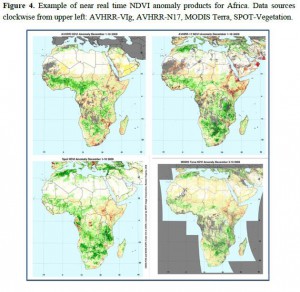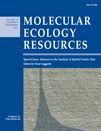As promised yesterday, here’s a summary of Dag Terje Endresen’s recent paper, by the author himself.
Focused Identification of Germplasm (FIGS, Mackay and Street, 2004) is a new method to select plant genetic resources for the improvement of food crops. A recent paper in Crop Science (Endresen, 2010) describes how climate data (derived from the WorldClim dataset, Hijmans et al,. 2005) for the original collecting site for 14 Nordic barley landraces was successfully correlated to 5 out of 6 morphological traits with a multiway regression method (N-PLS). This result indicates that the researcher or crop breeder faced with the world’s genebank collections of plant genetic resources could use climate data as a proxy to more efficiently find material with a particular, desired trait property, even when the trait itself is not measured for most of the genebank samples. Another obvious use case would be to apply the FIGS method to learn the ecogeographic signature (calibrate a computer model) for a particular crop trait and then next apply this computer model to identify likely locations to visit for collecting new germplasm to fill gaps and complete the genebank collection (Jarvis et al., 2003; and Jarvis et al., 2005). This last use case for the FIGS strategy would be a natural extension of the ecological niche modeling methods to estimate species distributions.
The growing size of the genebank collections has been quoted as a problem for the efficient use of these collections (see for example Mackay, 1995). The growing size of genebank collections, together with the common lack of important descriptive data, was one of the arguments for the introduction of the core selection method by Frankel and Brown way back in 1984. The available relevant genebank accessions for a given project are often much more numerous than the capacity to evaluate them (field land area, laboratory capacity or human resources). But the lack of important descriptive data on the genebank accessions is often a limitation for deriving a suitable smaller subset of accessions, such as a core. The FIGS method can be used to try to predict missing descriptive data in genebank collections, as long as they are geo-referenced.
It is however important to be aware that the FIGS models are computer simulations and should of course always be confirmed by experimental work with the genebank accessions in the field or laboratory. It is also important to be aware of the limitations of the FIGS method in modelling the explanation for the trait expression from the ecogeographic dataset only. Important climatic variables that could explain the geographic distribution of a trait might be missing from the data analysis. Improved availability online of large-scale ecogeographic datasets, like for example the WorldClim dataset, might gradually help to improve this limitation.
And not the least when working with cultivated material (landraces), the adaptive development of the crop trait might be more dominantly explained by the breeding decisions made by the farmer. For more modern cultivated material there is in fact no appropriate location of origin, as the breeding lines are often the complex result of crossing between genetic resources from very many different source locations.
The FIGS computer model is of course not intended to replace the valuable expert knowledge held by the crop breeders and genebank curators. An expert on the crop or trait in question would be in the best position to evaluate the FIGS prediction to make corrections and additions. The results from the FIGS prediction, together with the corrections and additions from the crop expert, would next guide the development of the smaller subset of accessions. The size of the smaller subset could be limited by the capacity by the size of the available field area, laboratory capacity, or by the project funding available for human resources.
Continue reading “Links between trait and ecogeographic data found for Nordic barley landraces”

 Oooooh, Molecular Ecology Resources has a whole special issue on “
Oooooh, Molecular Ecology Resources has a whole special issue on “